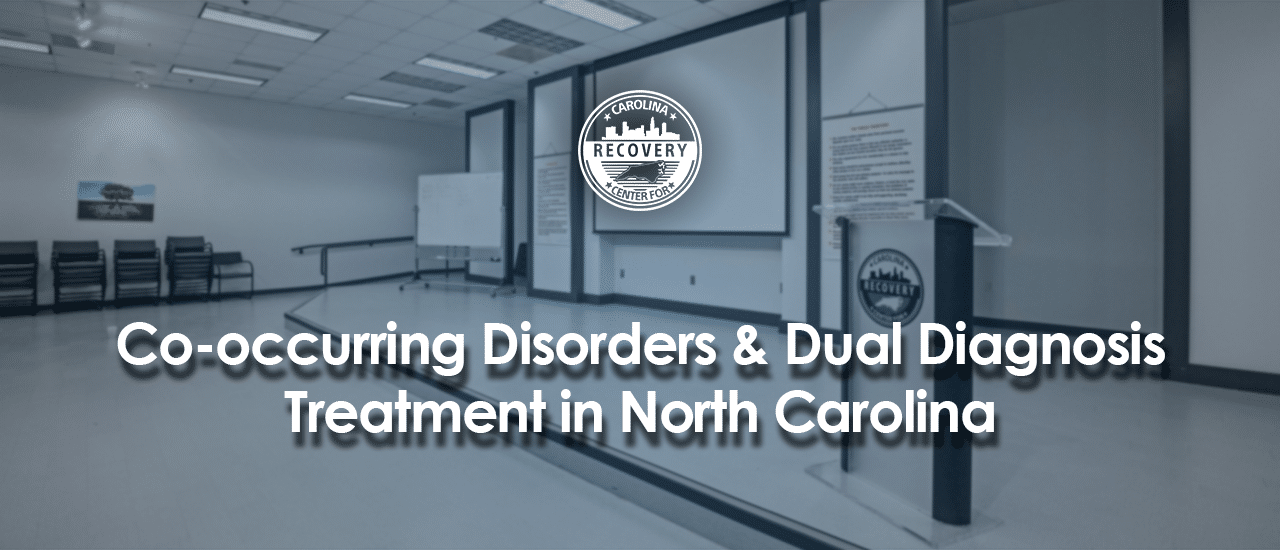


When a person experiences a substance use disorder and a mental health condition at the same time, they are diagnosed with a dual diagnosis, also known as co-occurring disorders. People who suffer from dual diagnosis conditions may face additional obstacles on their road to recovery that are more difficult to overcome than those faced by individuals who have a single disorder. Furthermore, symptoms of co-occurring disorders vary greatly in severity and duration, so individuals with a dual diagnosis may require long-term and individualized treatment.
Dual diagnosis refers to a wide variety of co-existing health conditions. Some examples of co-occurring disorders include, but are not limited to:
In whichever capacity that co-occurring disorders exist, one condition usually exacerbates and worsens the symptoms of the other and vice versa. For this reason, seeking treatment for only one condition is typically unsuccessful. Instead, patients who suffer from substance use disorders and mental health conditions can best benefit from dual diagnosis treatment programs.
Everyone is different when it comes to substance abuse and mental health. For example, many people begin experiencing mental health symptoms during late childhood and early adolescence, then begin experimenting with alcohol or drugs as a teenager. If a person finds that alcohol or drugs are effective at numbing one’s symptoms, they may continue to abuse the substance and develop an addiction. However, substance abuse only worsens symptoms of mental illness in the long run.
On the other hand, addiction occurs first in some people. Chronic drug and alcohol abuse produce extreme shifts in the structure and function of the brain, directly affecting the reward system. As people become increasingly dependent on an addictive substance, the chemical responses in their brain are affected, and they may begin experiencing symptoms of mental illness. While adolescent substance abuse is a risk factor for the development of a substance use disorder, it is also a risk factor for the development of mental illness.
Mental illness and addiction exist simultaneously at staggering rates. Over 60% of adolescents who enter substance abuse treatment programs also meet the criteria for the diagnosis of a co-occurring mental illness. Furthermore, approximately 25% of people who are diagnosed with a serious mental illness also have a substance use disorder.[1]
Co-occurring disorders usually begin presenting themselves during the adolescent years and progress through adulthood until an individual seeks help. Given the chronic nature of dual diagnosis conditions, our North Carolina mental health experts recommend an individualized and long-term regimen of care.
Co-occurring disorders can be difficult to diagnose because symptoms of mental illness often mimic symptoms of addiction. For example, common symptoms of both mental health conditions and drug or alcohol addiction include:
However, depending on the type of drug a person is abusing and the type of condition that they suffer from, their symptoms may vary. For example, a person who struggles with depression may withdrawal from friends and family and spend their time abusing alcohol while a person with bipolar disorder may be more susceptible to mood swings and risky behaviors. Signs that are commonly associated with dual diagnosis include:[2]
Living with co-occurring disorders is an unpleasant and life-threatening situation. People who suffer from dual diagnosis are at a higher risk for suicide and poor lifestyle choices if treatment is not obtained.
Regardless of the type of substance a person is abusing or their mental health symptoms, all of the signs and symptoms will become much more pronounced if a person is battling with a dual diagnosis. Since diagnosing co-occurring disorders is tricky, it is best to seek help from a professional dual diagnosis treatment program.
If one wants to successfully recover from addiction and manage their mental health condition, it is vital to seek professional help. Dual diagnosis treatment programs utilize the following features to ensure a detailed and thorough treatment plan:
Dual diagnosis treatment programs typically consist of an integrated treatment model that addresses the mind, body, and spirit through the use of behavioral therapy, holistic therapy, and pharmacotherapy. Each patient will have an individualized treatment plan that meets his or her specific needs as they progress through the following areas of treatment:
Throughout treatment, patients will receive behavioral therapy that helps them uncover the root causes and conditions of their diagnosis. By working through these challenges, patients can begin to heal from the trauma that fuels their current lifestyle. Then, therapists work closely with each client to help them develop lifestyle and wellness habits that are conducive to a sober and healthy lifestyle. Dual diagnosis treatment programs help patients in a variety of areas, including:
Although there is no cure for addiction or mental illness, there are numerous evidence-based therapies that we use at our dual diagnosis treatment program in North Carolina. These therapies are effective in treating those who are living with co-occurring disorders by helping them improve their lifestyle choices and habits.
The key to recovery is personalized care that is comprehensive and intensive to ensure that individuals receive full therapeutic support and intervention. At Carolina Center to Recovery, we’re dedicated to empowering everyone who suffers from co-occurring disorders so that they can make increasing progress on their road to recovery. If your or your loved one is in need of treatment for mental health and addiction, give us a call today.
References: